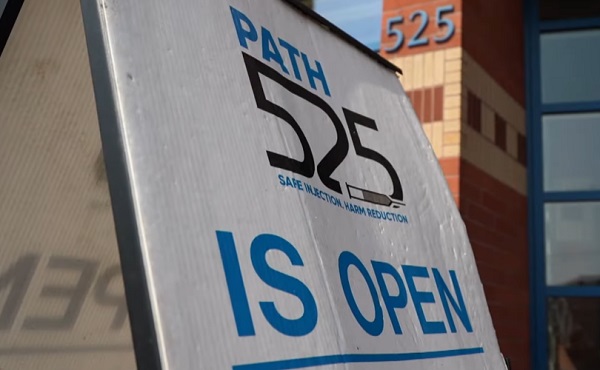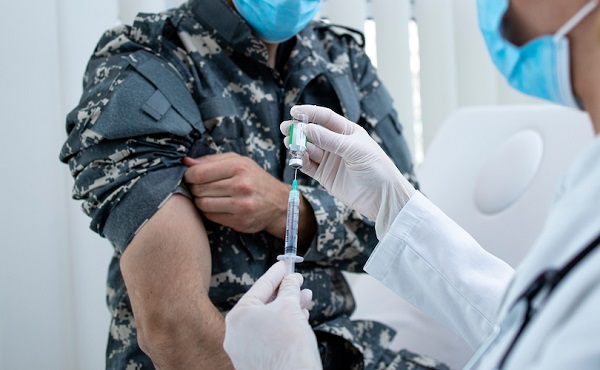Health
Radio-Canada journalist defends report exposing ‘gender clinics’ for ‘transitioning’ children

From LifeSiteNews
Radio-Canada journalist Pasquale Turbide revealed that concerns from parents were what originally sparked her investigative report on the gender ‘transitioning’ of children in Quebec.
A Radio-Canada journalist is defending her investigative report that exposed a “gender” clinic in Quebec for prescribing potentially sterilizing hormones to an actress posing as a young teen in less than ten minutes.
In a March 3 interview on Tout le Monde en Parle, Radio-Canada journalist Pasquale Turbide revealed that concerns from parents were what originally sparked her investigative report on the gender “transitioning” of children, and that she stands by her work despite backlash.
“Parents began writing to us last summer, when there was a bit of a controversy about names, pronouns, all-gender bathrooms, etc,” said Turbide in French.
“But the letters we were getting were not about those issues, they were talking about medical transitions,” she explained.
According to Turbide, the parents who contacted Radio-Canada revealed that their children, who believed they were “transgender,” were being offered sterilizing “puberty blockers” in the name of care.
“We started to look into it, and we easily found fifteen to twenty people who were all telling us more or less the same story,” said Turbide. “They were often very open-minded parents, open to homosexuality, open to all sorts of things but were panicking at the speed of the transgender healthcare system.”
The documentary, published by Radio-Canada, the French arm of the state-funded Canadian Broadcasting Corporation (CBC), delved into the dangers of giving children “puberty blockers” as well as the regrets of detransitioners, the term for people who have undergone irreversible surgeries in an attempt to “change” their gender but now regret it.
The report also followed an actress posing as a 14-year-old patient at a private “gender clinic” in Quebec where she was prescribed testosterone and advised on life-altering mutilating surgeries during a consultation that lasted a meagre nine minutes.
During her interview, Turbide exposed the dangers of taking puberty blockers, especially considering many of the side effects are still unknown.
“We’re beginning to realize that they may have an impact on brain development,” she stated.
“Girls take testosterone, boys take estrogen and that’s semi-irreversible,” Turbide added. “Some things don’t come back even if they stop. One’s voice will stay changed most of the time. The face of their shape is another thing that’s affected. You can become infertile if you are a girl. It’s not yet clear how far it can go.”
Turbide further pointed out that some Scandinavian countries are seeking to ban the irreversible treatments for children.
The documentary went viral online the same week leaked internal communications show doctors who offer so-called “gender-affirming care” know that transgender hormones cause serious diseases, including cancer.
Journalist Michael Shellenberger released the internal documents from the World Professional Association for Transgender Health (WPATH), which “is considered the leading global authority” on so-called “gender medicine,” despite being an LGBT activist group.
The “WPATH FILES” include emails and messages from an internal discussion forum by doctors, as well as statements from a video call of WPATH members. The files reveal that the doctors working for WPATH know that so-called “gender-affirming care” can cause severe mental and physical disease and that it is impossible for minors to give “informed consent” to it.
As LifeSiteNews has previously noted, research does not support the assertions from transgender activists that surgical or pharmaceutical intervention to “affirm” confusion is “necessary medical care” or that it is helpful in preventing the suicides of gender-confused individuals.
In fact, in addition to asserting a false reality that one’s sex can be changed, transgender surgeries and drugs have been linked to permanent physical and psychological damage, including cardiovascular diseases, loss of bone density, cancer, strokes and blood clots, infertility, and suicidality.
There is also overwhelming evidence that those who undergo “gender transitioning” are more likely to commit suicide than those who are not given irreversible surgery. A Swedish study found that those who underwent “gender reassignment” surgery ended up with a 19.2 times greater risk of suicide.
Indeed, there is proof that the most loving and helpful approach to people who think they are a different sex is not to validate them in their confusion but to show them the truth.
A new study on the side effects of transgender “sex change” surgeries discovered that 81 percent of those who had undergone “sex change” surgeries in the past five years reported experiencing pain simply from normal movement in the weeks and months that followed — and that many other side effects manifest as well.
Additionally, LifeSiteNews compiled a list of medical professions and experts who warn against transgender surgeries, warning of irreversible changes and lifelong side effects.
Addictions
Ontario to restrict Canadian government’s supervised drug sites, shift focus to helping addicts

From LifeSiteNews
Doug Ford’s Progressive Conservative government tabled the Safer Streets, Stronger Communities Act that will place into law specific bans on where such drug consumption sites are located.
Ontario Premier Doug Ford is making good on a promise to close so-called drug “supervision” sites in his province and says his government will focus on helping addicts get better instead of giving them free drugs.
Ford’s Progressive Conservative government on Monday tabled the Safer Streets, Stronger Communities Act that will place into law specific bans on where such drug consumption sites are located.
Specifically, the new bill will ban “supervised” drug consumption sites from being close to schools or childcare centers. Ten sites will close for now, including five in Toronto.
The new law would prohibit the “establishment and operation of a supervised consumption site at a location that is less than 200 meters from certain types of schools, private schools, childcare centers, Early child and family centers and such other premises as may be prescribed by the regulations.”
It would also in effect ban municipalities and local boards from applying for an “exemption from the Controlled Drugs and Substances Act (Canada) for the purpose of decriminalizing the personal possession of a controlled substance or precursor.”
Lastly, the new law would put strict “limits” on the power municipalities and local boards have concerning “applications respecting supervised consumption sites and safer supply services.”
“Municipalities and local boards may only make such applications or support such applications if they have obtained the approval of the provincial Minister of Health,” the bill reads.
The new bill is part of a larger omnibus bill that makes changes relating to sex offenders as well as auto theft, which has exploded in the province in recent months.
In September, Ford had called the federal government’s lax drug policies tantamount to being the “biggest drug dealer in the entire country” and had vowed to act.
‘No’ new drug sites in Ontario, vows Health Minister
In speaking about the new bill, Ontario Minister of Health Sylvia Jones said the Ford government does not plan to allow municipal requests to the government regarding supervised consumption sites.
“Municipalities and organizations like public health units have to first come to the province because we don’t want them bypassing and getting any federal approval for something that we vehemently disagree with,” Jones told the media on Monday.
She also clarified that “there will be no further safe injection sites in the province of Ontario under our government.”
Ontario will instead create 19 new intensive addiction recovery to help those addicted to deadly drugs.
Alberta and other provinces have had success helping addicts instead of giving them free drugs.
As reported by LifeSiteNews, deaths related to opioid and other drug overdoses in Alberta fell to their lowest levels in years after the Conservative government began to focus on helping addicts via a recovery-based approach instead of the Liberal-minded, so-called “safe-supply” method.
Despite public backlash with respect to supervised drug consumption sites, Health Canada recently approved 16 more drug consumption sites in Ontario. Ford mentioned in the press conference that each day he gets “endless phone calls about needles being in the parks, needles being by the schools and the daycares,” calling the situation “unacceptable.”
The Liberals claim their “safer supply” program is good because it is “providing prescribed medications as a safer alternative to the toxic illegal drug supply to people who are at high risk of overdose.”
However, studies have shown that these programs often lead an excess of deaths from overdose in areas where they are allowed.
While many of the government’s lax drug policies continue, they have been forced to backpedal on some of their most extreme actions.
After the federal government allowed British Columbia to decriminalize the possession of hard drugs including heroin, cocaine, fentanyl, meth and MDMA beginning January 1, 2023, reports of overdoses and chaos began skyrocketing, leading the province to request that Trudeau re-criminalize drugs in public spaces.
A week later, the federal government relented and accepted British Columbia’s request.
Alberta
Early Success: 33 Nurse Practitioners already working independently across Alberta

Nurse practitioners expand primary care access |
The Alberta government’s Nurse Practitioner Primary Care program is showing early signs of success, with 33 nurse practitioners already practising independently in communities across the province.
Alberta’s government is committed to strengthening Alberta’s primary health care system, recognizing that innovative approaches are essential to improving access. To further this commitment, the Nurse Practitioner Primary Care Program was launched in April, allowing nurse practitioners to practise comprehensive patient care autonomously, either by operating their own practices or working independently within existing primary care settings.
Since being announced, the program has garnered a promising response. A total of 67 applications have been submitted, with 56 approved. Of those, 33 nurse practitioners are now practising autonomously in communities throughout Alberta, including in rural locations such as Beaverlodge, Coaldale, Cold Lake, Consort, Morley, Picture Butte, Three Hills, Two Hills, Vegreville and Vermilion.
“I am thrilled about the interest in this program, as nurse practitioners are a key part of the solution to provide Albertans with greater access to the primary health care services they need.”
To participate in the program, nurse practitioners are required to commit to providing a set number of hours of medically necessary primary care services, maintain a panel size of at least 900 patients, offer after-hours access on weekends, evenings or holidays, and accept walk-in appointments until a panel size reaches 900 patients.
With 33 nurse practitioners practising independently, about 30,000 more Albertans will have access to the primary health care they need. Once the remaining 23 approved applicants begin practising, primary health care access will expand to almost 21,000 more Albertans.
“Enabling nurse practitioners to practise independently is great news for rural Alberta. This is one more way our government is ensuring communities will have access to the care they need, closer to home.”
“Nurse practitioners are highly skilled health care professionals and an invaluable part of our health care system. The Nurse Practitioner Primary Care Program is the right step to ensuring all Albertans can receive care where and when they need it.”
“The NPAA wishes to thank the Alberta government for recognizing the vital role NPs play in the health care system. Nurse practitioners have long advocated to operate their own practices and are ready to meet the growing health care needs of Albertans. This initiative will ensure that more people receive the timely and comprehensive care they deserve.”
The Nurse Practitioner Primary Care program not only expands access to primary care services across the province but also enables nurse practitioners to practise to their full scope, providing another vital access point for Albertans to receive timely, high-quality care when and where they need it most.
Quick facts
- Through the Nurse Practitioner Primary Care Program, nurse practitioners receive about 80 per cent of the compensation that fee-for-service family physicians earn for providing comprehensive primary care.
- Compensation for nurse practitioners is determined based on panel size (the number of patients under their care) and the number of patient care hours provided.
- Nurse practitioners have completed graduate studies and are regulated by the College of Registered Nurses of Alberta.
- For the second consecutive year, a record number of registrants renewed their permits with the College of Registered Nurses of Alberta (CRNA) to continue practising nursing in Alberta.
- There were more than 44,798 registrants and a 15 per cent increase in nurse practitioners.
- Data from the Nurse Practitioner Primary Care Program show:
- Nine applicants plan to work on First Nations reserves or Metis Settlements.
- Parts of the province where nurse practitioners are practising: Calgary (12), Edmonton (five), central (six), north (three) and south (seven).
- Participating nurse practitioners who practise in eligible communities for the Rural, Remote and Northern Program will be provided funding as an incentive to practise in rural or remote areas.
- Participating nurse practitioners are also eligible for the Panel Management Support Program, which helps offset costs for physicians and nurse practitioners to provide comprehensive care as their patient panels grow.
Related information
-

 ESG2 days ago
ESG2 days agoCan’t afford Rent? Groceries for your kids? Trudeau says suck it up and pay the tax!
-

 John Stossel2 days ago
John Stossel2 days agoGreen Energy Needs Minerals, Yet America Blocks New Mines
-

 Daily Caller2 days ago
Daily Caller2 days agoLos Angeles Passes ‘Sanctuary City’ Ordinance In Wake Of Trump’s Deportation Plan
-

 Alberta2 days ago
Alberta2 days agoProvince considering new Red Deer River reservoir east of Red Deer
-

 Addictions2 days ago
Addictions2 days agoBC Addictions Expert Questions Ties Between Safer Supply Advocates and For-Profit Companies
-

 Aristotle Foundation1 day ago
Aristotle Foundation1 day agoToronto cancels history, again: The irony and injustice of renaming Yonge-Dundas Square to Sankofa Square
-

 conflict1 day ago
conflict1 day agoUS and UK authorize missile strikes into Russia, but are we really in danger of World War III?
-

 armed forces1 day ago
armed forces1 day agoJudge dismisses Canadian military personnel’s lawsuit against COVID shot mandate







